Watch on the Rhine

Brief Synopsis
Cast & Crew
Herman Shumlin
Bette Davis
Paul Lukas
Geraldine Fitzgerald
Lucile Watson
Beulah Bondi
Film Details
Technical Specs

Synopsis
In 1940, the Muller family, German-born Kurt, his American wife Sara and their three children, Joshua, Babette and Bodo, the youngest, cross the Mexican border into the United States to visit Sara's family. In Washington, D.C., Sara's arrival is eagerly awaited by her brother, David Farrelly, her mother Fanny, family friend Anise and their house guests, Rumanian count Teck de Brancovis and his American wife Marthe. Sara has not seen her family for seventeen years, during which time Kurt, a former engineer, has responded to the Nazi threat in Europe by actively engaging in anti-Fascist work. Prompted by Fanny's questions to Kurt, Sara explains his work and adds that they have come to the United States so that Kurt can have a much-needed rest in safety. Kurt's safety is illusory, however, because the opportunistic Teck has been currying favor with the Germans in Washington. When Marthe refuses to question David, with whom she has fallen in love, about Kurt, Teck searches the Mullers' room and finds a locked briefcase containing a gun and some money. Shortly after Sara discovers the broken lock on the briefcase, the Mullers learn about the arrest of resistance worker Max Freidech. Later, after Teck and Marthe leave for dinner at the German embassy, Sara tells Fanny and David that she and Kurt are carrying money to aid the underground in Germany. She adds that because Max once saved Kurt from the Gestapo, Kurt will now return to Germany to try to save Max and the other people arrested with him. Later, Kurt turns down Joshua's offer to accompany him to Germany, explaining that his time will come when he is older. Upon their return from the embasy, Marthe denounces her husband and reveals that she is leaving him. Realizing that Kurt will be in great danger if the Nazis know that he is returning to Germany, Teck demands $10,000 for his silence. After Kurt summarily refuses him, David and Fanny agree to pay him off. While they are out of the room, however, Kurt pulls a gun on Teck and takes him outside, where he kills him. When Fanny and David return, Kurt explains his actions and asks them for two days to make his getaway. With a new understanding of the dangers Kurt faces, Fanny and David agree to help and give him the money they would have given Teck. Some time later, when no word has come from Kurt, Joshua declares his intention to search for his father after his next birthday, when he will turn eighteen. Although Sara is distressed by the thought of losing her son as well as her husband, she admits that when the time comes, she will do her best to be brave.

Director
Herman Shumlin
Cast

Bette Davis

Paul Lukas

Geraldine Fitzgerald

Lucile Watson

Beulah Bondi

George Coulouris
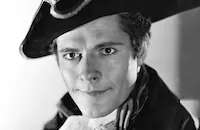
Donald Woods
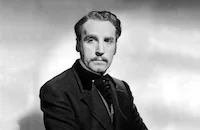
Henry Daniell

Donald Buka
Eric Roberts
Janis Wilson

Helmut Dantine
Mary Young
Kurt Katch
Erwin Kalser
Davis Roberts

Clyde Fillmore
Frank Wilson
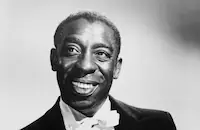
Clarence Muse
Violett Mcdowell
Joe Bernard
Creighton Hale
William Washington
Elvira Curci

Anthony Caruso
Michele Fehr
Jean Debriac
Leah Baird
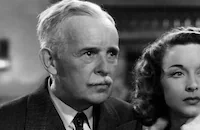
Howard Hickman
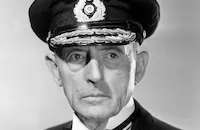
Frank Reicher
Robert C. Fischer
Walter Stahl
Glen Cavender
Wedgwood Nowell

Alan Hale Jr.

Jack Mower
Garry Owen
Hans Von Morhart
Herma Cordova
Gretl Dupont
Crew
Edward Blatt
Reggie Callow
Edwin B. Dupar
Rudi Fehr
Leo F. Forbstein
Ellsworth Fredericks
Hugo Friedhofer
Merritt Gerstad
Morris Goldman
Dashiell Hammett
Chuck Hansen
Lillian Hellman
Julia Heron
Jack Holden
Claude Hutchinson
Dick Mayberry
Hal Mohr
Roy Noble
Florence O'neill
Orry-kelly
Bill Phillips
Mary Riley
Ted Schultz
Bert Six
Tillie Starrett
Max Steiner
George Stout
S. K. Taylor
Dolph Thomas
Jack L. Warner
Perc Westmore
Carl Jules Weyl

Photo Collections
Videos
Movie Clip



Trailer
Hosted Intro
Film Details
Technical Specs

Award Wins
Best Actor
Award Nominations
Best Picture
Best Screenplay
Best Supporting Actress
Best Writing, Screenplay
Articles
Watch on the Rhine
Producer Hal B. Wallis wanted Hellman to adapt the play herself, but she already had a commitment to independent producer Samuel Goldwyn. Instead, she suggested her longtime companion, mystery novelist Dashiell Hammett, then offered to come in to write additional dialogue once his draft was completed. Many critics felt that they actually improved the play by shifting the focus from the main character, Kurt Muller, and his personal vendetta against the Nazis to show the effect the war had on his entire family.
To star as Muller, Wallis wanted Charles Boyer, but the French actor feared that he couldn't master a convincing German accent for the role. At the urging of Herman Shumlin, who had directed the Broadway production and would make his screen debut with the film version, Wallis gave the role to the play's original leading man, Paul Lukas.
The Hungarian-born Lukas had been a stage star in Europe when he was discovered by Paramount head Jesse Lasky and brought to Hollywood to star in silent films. He made a successful transition to talkies, but after 15 years in Hollywood had failed to establish a memorable image, mostly playing continental villains. So he left the screen for Broadway, where he had a major hit in Watch on the Rhine.
With the relatively little known Lukas in the male lead, Wallis needed a female star to sell the picture. The studio's biggest star, Bette Davis, would have been the logical choice, but she was tied up on Now Voyager (1942). Shumlin suggested either Helen Hayes or Margaret Sullavan, but the former wasn't a big screen name and the latter chose to return to the stage to star in The Voice of the Turtle. Wallis then offered the role to Irene Dunne, but she didn't think it important enough. Then Hammett broke his back, which delayed work on the screenplay. By the time he was done, Davis was almost finished with Now Voyager and jumped at the chance to star in such an important picture. Given her secondary role, she tried to convince Wallis to give Lukas star billing, but the publicity department was adamant-only her name at the top could sell the picture.
Her name helped to sell a lot of tickets and the film was one of Warner's biggest hits of the year. It also won amazing reviews, with critics hailing Lukas' performance as one of the greatest in film history. The film and Lukas captured New York Film Critics Awards, and seemed to be shoo-ins for the Oscars®. On the big night, Lukas picked up the coveted award, but the film was aced out by a lesser Warner's film that most people at the studio had forgotten about - Casablanca.
Producer: Hal B. Wallis
Director: Herman Shumlin
Screenplay: Dashiell Hammett
Cinematography: Merrit B. Gerstad
Costume Design: Orry-Kelly
Film Editing: Rudi Fehr
Original Music: Max Steiner
Principal Cast: Bette Davis (Sara Muller), Paul Lukas (Kurt Muller), Geraldine Fitzgerald (Marthe de Brancovis), Donald Woods (David Farrelly), George Coulouris (Teck Debrancovis), Lucile Watson (Fanny Farrelly)
BW-112m. Closed captioning.
by Frank Miller

Watch on the Rhine
Geraldine Fitzgerald (1913-2005)
Born in Dublin on November 24, 1913, Fitzgerald was educated for a time in a convent school in London. Back in her native Dublin, she happily accompanied her aunt, the Irish actress Shelah Richards, to a theater one afternoon when the director mistook her for an actress, and instructed her "to go backstage and change." An inauspicious start, but it gave her the acting bug. She made her stage debut in 1932 in Dublin's Gate Theater and later appeared in a few forgettable British films: Open All Night (1934), The Ace of Spades, Three Witnesses (both 1935). She made the trip across the Atlantic in 1938 to act with Orson Welles and his Mercury Theater, but agents from Warner Bros. quickly signed her and she was soon off to Hollywood.
She made her film debut in 1939 supporting Bette Davis in Dark Victory, but it was her performance in a second film later in the year that proved to be the most memorable of her career - the role of Isabella Linton in Wuthering Heights. She earned an Oscar® nomination for her turn and stardom should have been around the corner, but Fitzgerald's feuding with studio head Jack Warner (he refused to let her return to the New York stage and she would refuse parts that she thought were inferior) led to some lengthy suspensions of unemployment. Irregardless, Fitzgerald still had some shining moments at Warner Bros. the heady melodrama The Gay Sisters (1942); the superb espionage thriller Watch on the Rhine (1943); Robert Siodmak's terrific, noirish thriller The Strange Affair of Uncle Harry (1945); and a tough crime drama where she played opposite John Garfield Nobody Lives Forever (1946).
Fitzgerald returned to New York by the '50s, and found much work in many of the live television dramas that were so popular in the day: Goodyear Television Playhouse, Lux Video Theatre, Studio One, Schlitz Playhouse of Stars; and even some taped television shows: Naked City, Alfred Hitchcock Presents in between her stage demands.
She did return to the screen by the mid-'60s and proved herself a fine character actress in films like The Pawnbroker (1965); Rachel, Rachel (1968); Harry and Tonto (1974); a wonderfully memorable comic turn as Dudley Moore's feisty grandmother in Arthur (1981); and yet another noteworthy performance as Rose Kennedy in the acclaimed mini-series Kennedy (1983). She also appeared in a few television programs: St. Elswhere, Cagney & Lacey, and The Golden Girls before ill-health forced her to retire by the early '90s. Among the relatives that survive her are her son, director Michael Lindsay-Hogg (Brideshead Revisited; a daughter, Susan Scheftel; and her great-niece, the English actress Tara Fitzgerald.
by Michael "Mitch" Toole
Geraldine Fitzgerald (1913-2005)
Quotes
Trivia
Notes
The film begins with the following written foreword: "In the first week of April 1940 there were few men in the world who could have believed that in less than three months Denmark, Norway, Belgium, Holland and France would fall to the German invaders. But there were some men, ordinary men, not prophets, who knew this mighty tragedy was on the way. They had fought it from the beginning and they understood it. We are most deeply in ther debt. This is the story of one of these men." A December 2, 1941 Hollywood Reporter news item reports that Warner Bros. paid $150,000 for the film rights to Lillian Hellman's play. The play was produced by Herman Shumlin, who directed the film version. Several of the actors, including Paul Lukas (who won the Oscar for Best Actor and the New York Drama Critics award for his portrayal of "Kurt"), Lucile Watson (who was nominated as Best Supporting Actress), George Coulouris, Eric Roberts and Frank Wilson reprised their theatrical roles for the film. Lillian Hellman and Dashiell Hammett's script was nominated for Best Screenplay.
According to memos in the Warner Bros. Collection at the USC Cinema-Television Library, the PCA objected that the murder of "Teck" by "Kurt" was left unpunished and made to seem justified. As a solution, the Hays Office suggested that the scene could remain if it were established at the end of the film that "Kurt" had been killed by the Nazis. Author Lillian Hellman called this attitude childish and the studio agreed that there was no need to justify the killing of a Nazi. Information in the Warner Bros. Collection notes that Margaret Sullavan and Irene Dunne were considered for the role of "Sara" and George Sanders was considered for the role of "Teck." A poll of film reviewers and critics conducted in 1943 by Film Daily named Paul Lukas in this picture as their favorite actor. A June 29, 1942 Hollywood Reporter news item reports that some scenes were filmed on location at the Graves Mansion in San Marino, CA. According to information in the Warner Bros. Collection, other scenes were filmed at Union Station in Los Angeles, the Warner Bros. Ranch and at Busch Gardens in Pasadena, CA. According to modern sources, Paul Henreid and Charles Boyer tested for the role of "Kurt Muller." The film was named one of the Film Daily Ten Best Pictures of 1943 and also was the NYFC choice for Best Picture.
















